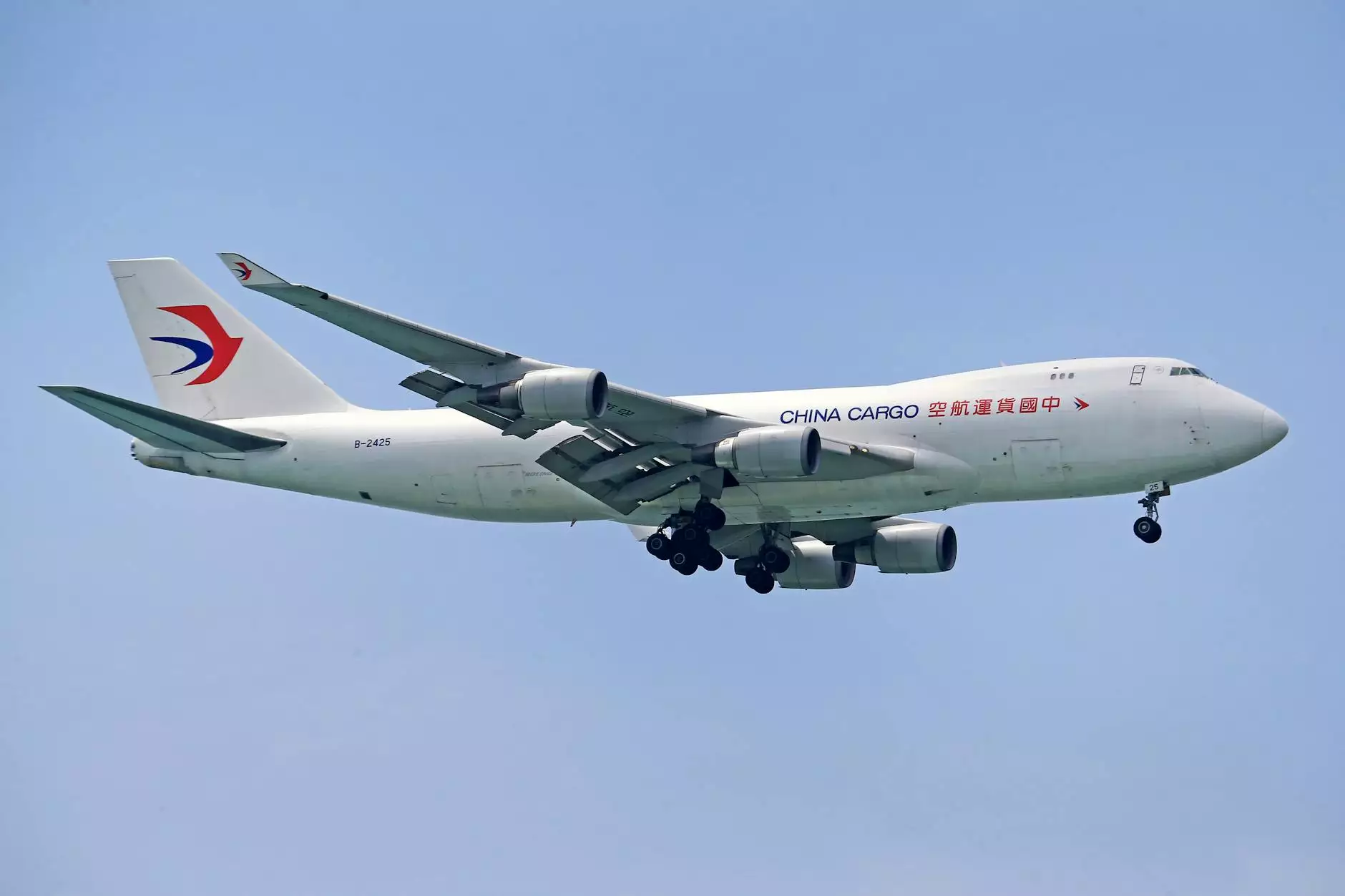The Comprehensive Guide to Airfreight Cargo: Unlocking Global Trade Success

In an increasingly interconnected world, the role of airfreight cargo in global trade cannot be overstated. Businesses today rely on the rapid and efficient transportation of goods, and air freight has emerged as one of the most reliable methods. This article delves into the intricacies of airfreight cargo, focusing on its fundamentals, benefits, contributions to shipping centers, transportation networks, and its crucial relationship with airports.
Understanding Airfreight Cargo
Airfreight cargo refers to the transportation of goods via air, usually involving commercial airlines or dedicated freight carriers. This modality is favored for its speed and reliability, especially for businesses needing urgent delivery. Airfreight is pivotal for industries such as electronics, pharmaceuticals, and fresh produce, where time sensitivity is paramount.
Benefits of Airfreight Cargo
The benefits of utilizing airfreight cargo are both numerous and significant, making it a preferred choice for businesses looking to optimize their distribution strategies.
- Speed: Airfreight allows for quick delivery of goods across vast distances. Deliveries can often be made within 24 to 48 hours.
- Reliability: Airlines typically run on tight schedules, which means that shipments are likely to arrive on time. Tracking systems also enhance reliability.
- Global Reach: Air cargo networks can reach remote areas that might be difficult to serve via other transportation methods.
- Less Damage: Air transport is less likely to subject goods to rough handling, reducing the chance of damage.
- Security: Enhanced security measures are implemented at airports, ensuring the safety of goods throughout their transit.
How Airfreight Cargo Enhances Shipping Centers
Shipping centers play a critical role in the logistics ecosystem. Airfreight cargo significantly enhances these centers by:
- Increasing Operational Efficiency: The speed of airfreight facilitates quicker turnover in shipping centers, speeding up the entire supply chain.
- Facilitating Just-In-Time Delivery: Businesses can operate with minimal inventory levels due to the reliability of airfreight, leading to reduced storage costs and improved cash flow.
- Supporting Global Trade: With airfreight, shipping centers can efficiently connect to international markets, enabling businesses to expand their reach.
The Role of Transportation in Airfreight Cargo
Transportation is the backbone of airfreight cargo services. The entire process involves multiple transportation modalities that ensure timely deliveries. Here’s how transportation integrates with airfreight:
Pre-Flight Transportation
Goods destined for air transport must be effectively transported to the airport. This involves:
- Road Transport: Trucks are the most common mode for transferring cargo to airports, especially for domestic flights.
- Rail Transport: In some regions, rail services can efficiently move large quantities of goods to air cargo hubs.
Post-Flight Transportation
Post-flight, efficient transfer to end destinations is crucial. Here’s how it's done:
- Local Delivery Services: Once goods arrive, local couriers or logistics providers handle the last-mile delivery.
- Intermediary Transport: Goods may be transported to distribution centers or warehouses after they arrive at the airport.
Key Airports for Airfreight Cargo Operations
The choice of airport is vital for optimizing airfreight operations. Certain airports serve as major hubs for airfreight cargo globally. Some of the key airports to consider include:
- Memphis International Airport: A global hub, Memphis serves as the primary hub for FedEx, handling a massive volume of cargo.
- Hong Kong International Airport: This airport not only connects businesses in Asia but also serves as a pivotal gateway for international trade.
- Los Angeles International Airport: As a significant port for freight transport in the U.S., LAX supports vital trade routes across the Pacific.
- Chicago O'Hare International Airport: One of the busiest cargo airports in the U.S., it serves as a critical point for both domestic and international airfreight.
Challenges and Solutions in Airfreight Cargo
Despite the many advantages of airfreight cargo, businesses often face challenges, including:
Regulatory Compliance
Airfreight involves navigating complex international regulations and customs requirements. To mitigate this challenge, businesses should:
- Stay updated with the latest regulations affecting air cargo.
- Engage with experienced logistics partners familiar with all compliance aspects.
Cost Management
Airfreight can be more expensive than other transport modes, especially for bulky items. To optimize costs, companies can:
- Consolidate smaller shipments to take advantage of bulk shipping rates.
- Negotiate contracts with airlines for better pricing based on volume.
The Future of Airfreight Cargo
The airfreight industry continues to evolve, with several trends shaping its future. These include:
Technology Integration
Automation, AI, and blockchain technology are set to revolutionize airfreight operations. These innovations will enhance:
- Tracking and transparency of shipments.
- Efficiency in logistics management.
- Improved customer service through real-time updates.
Sustainability Initiatives
With growing concerns about climate change, the airfreight industry is increasingly adopting sustainable practices, such as:
- Using fuel-efficient aircraft.
- Investing in carbon offset programs.
- Optimizing flight paths to reduce emissions.
Conclusion
The scope of airfreight cargo is vast, impacting not only the logistics sector but also globalization and commerce. As businesses continue to seek faster and more efficient ways to deliver products, airfreight will remain a critical component of their strategy. Understanding the numerous benefits, challenges, and future trends associated with airfreight cargo enables businesses to align their logistics operations with global demands and expand their reach across markets.
Consider partnering with experienced logistics providers such as cargobooking.aero to fully leverage the advantages of airfreight and streamline your cargo operations, enhancing your business's flexibility and responsiveness in today's competitive marketplace.
airfreight cargo







